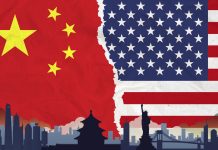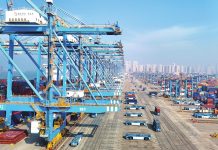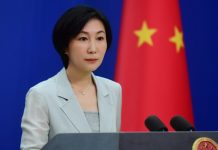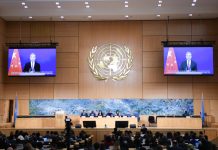Staff Report
ISLAMABAD: A U.S. ban on import of Xinjiang cotton will not hurt the Chinese economy given the latter’s mammoth dynamics, but the ban will ultimately fracture the supply of the U.S. apparel industry, a Pakistani analyst said.
World leading apparel brands and a large number of companies, including many from the United States, import cotton from China, thus the ban is feared to result in fracturing the supply chain of the companies, Khalid Taimur Akram, executive director of Islamabad-based think-tank Center for Global and Strategic Studies, told Xinhua in a recent interview.
China is one of the leading cotton producers in the world, the expert said, adding that as the largest cotton-growing region in China, Xinjiang makes up some 87 percent of the country’s total cotton output and about one-fifth of the world’s total.
The use of modern technologies have enabled China to get the best quality and high-yield cotton, making it hard for the leading international brands to find alternatives, Akram said.
“The ban will not impact the Chinese economy, but massively affect international brands’ consumption. I suggest that the companies should not politicize their economic interest because of propaganda against China. Restricting China’s cotton supply chains over false allegations and mere propaganda would be detrimental to the cotton availability to the West and international market,” he added.
Noting that China has a huge domestic market, Akram said Xinjiang cotton will be consumed domestically in the textile sector, and other big markets like South and Southeast Asia, Africa, or Eastern Europe do have the potential to act as the alternative markets for the Xinjiang cotton.
Calling the U.S. ban on Xinjiang cotton a politically motivated plot, he said that all the allegations about abusing local Muslim community in Xinjiang are meaningless and merely politicizing economic campaigns against the growing Chinese economy.
“The propaganda against the Chinese cotton industry is an orchestrated attack fueled by Western interests against China’s increasing influence. It is clear that the baseless allegations of human rights abuses are being used as a political weapon against China to augment the Western economic and geopolitical rivalry and agenda,” he said.
He said that the United States and some Western countries have collaborated to politically manipulate the international community by using Xinjiang and human rights as an excuse to destabilize the region, and to sabotage China’s standing in the international community.
“China has alleviated absolute poverty and achieved sustainable development in Xinjiang. The employment level is stable and a large number of job opportunities have been created by the amazing policies of the Chinese leadership,” he said.
“The vicious motives behind the false political campaign would end soon as the disruption of the supply chain cannot be borne by any country,” he added.






